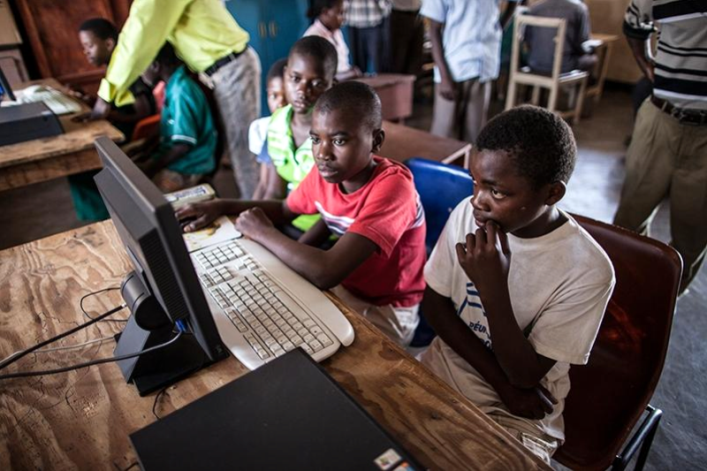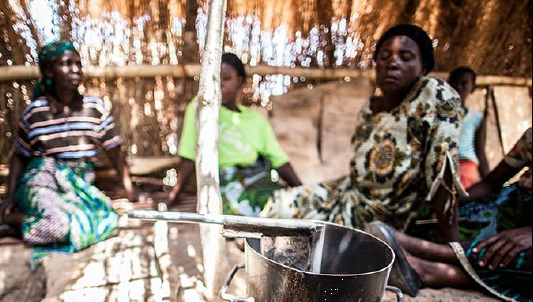DATABASE
Community empowerment for efficient production use and access of renewable and sustainable energy in rural area in Malawi
ongoing
Country
Malawi
Budget
500.000 - 3M $
Year
2011
Issue
Solutions
Link
www.coopi.org
Abstract
The project aims to increase access to modern, affordable and sustainable energy services for rural poor in the Central Region of Malawi– District of Kasungu and Likoma Island, with a twofold objective: providing renewable energy solutions and promoting energy efficiency for production, transformation and productive use.
Project Description
In Malawi national grid covers 5% of the population due to high capital cost for grid extension, inability to pay fees for low income people, underinvestment in the power utility corp.-ESCOM. In rural areas less than 1% are electrified. Over dependence on fossil fuel energy creates environmental, health, social and economic problems. The projects aims to increase access to sustainable energy in order to reduce climate change and improve the livelihood of rural communities in Malawi. Energy Saving Stoves: sensitization of 8000 people; training-support to 6 ESS making groups; competition for best supplier; 3500 ESS distributed. Solar energy for water:6 water towers provided with solar energy motorized pumps and pipes; training-support to 6 irrigation committees. Solar energy for communities: in Kasungu 20 solar panels provided (up to 300 kWh/year) to 20 villages; 20 new businesses; building capacity with DNPW and NRCs staff (Department of National Parks and Wildlife and Natural Resource Committees) for forest management scheme; 2600 solar panels to households for lighting (>4 hours/day) versus reforestation activities; in Likoma hybrid solar-wind system provided to LITA tourism association (up to20000kWh/year)+2 communities (up to 300kWh/y/each)+incomes generation activities. Solar energy for schools: 6 solar units to 6 schools (up to 2000kWh)+basic IT facilities +support 6 school administration in raising funds for maintenance +sensitization to 3000 students on renewable energy.
BENEFICIARIES
>14.900 people access to energy: 1850 households(HH) in Kasungu (app. 10000 people); 375 HH in Likoma (app 2000 people)+tourism association+3000 students. 8000 people using energy saving stores app 1454 HH (Kasungu+Likoma) Indirect beneficiaries: local communities of Kasungu and Likoma, 22.400 people
Results
1. 8000 people reduce 40% wood consumption through ESS and produce less smokes Active ESS makers produce up to 300 ESS per month (7 people-6 women) 2. 6 communities in Kasungu access to energy for agriculture activities +14 acres of new cultivated land(target:24).Agricultural committees responsible for maintenance 3. 1000 HH 5000 people in Kasungu access to energy. 20 small businesses created. Lights for 1000 households provided. Small business created (shops, TV showroom, phone charging..). 2600 solar torches distributed for night lighting vs reforestation activities 4. 808 HH 5 small businesses and 1 electric water pump in Likoma access to energy by solar panels and wind power 24/24h energy supply available by hybrid system for small business managed by LITA tourist association -small shops, internet cafe, restaurant.. 5. 3000 students 6 schools have up to 2000 kWh of solar energy per y to support lightening, IT teaching and laboratory activities School performances improved from 52 to 72%
Business Model
- Use of low cost, locally available, low input technologies for energy saving/efficient use of biomass - Use of community based structures, developing capacity of Area Development Committees (ADCs), Village Natural Resource Committees (VNRC), Agricultural Committees (AC) - Business Approach: energy supply units are not given for free but recipients must be eligible for receive/keep them - Integration of environment friendly approaches: 3 kind of energy sources (solar-wind-bio mass sustainable use)
Lessons Learnt
Positive impacts on local communities livelihood especially for women and many people attracted from other villages. Communities request more power to the PV system, to propose new businesses and activities, better manage the irrigation system, improve agriculture productivity and solve power failure. Maintenance of plants and stoves is a key challenge, with possible conflicts arising. Essential may be more training on maintenance of energy structures, irrigation systems, ESS marketing and selling, modalities and foods with new stoves. Costs for ESS production may be an issue for expanding businesses (particularly for clay provision and transport). Incentives may be an option.
Key Feature
Scaling up of the project is high given associated social economical and environmental impacts. Tourism, agriculture and micro business are main promoted sectors trough access to energy. Among basic services, education has been chosen, as a development engine. As it’s not affordable for Malawi State and private companies to connect rural areas of intervention to national grid, the proposed action provides energy solutions to people that would otherwise remain un-served, a model of intervention in similar contexts. Quite innovative is the hybrid system. A positive cycle has been generated by beneficiaries, project owners, using energy supply to increase incomes, reinvesting part of them to expand energy systems, with multiple running effects. Scaling up and replicability are also key features of ESS dissemination and production model, with main impacts on women’s livelihood (time saving from cooking, wood and water collection invested in education and income generating activities).
Other significant information
Together with COOPI, various stakeholders played relevant role and participation in the action. Fondazione Politecnico, Department of Energy of Politecnico di Milano and the UNESCO Chair in Energy for Sustainable Development: partner for monitoring& evaluation Maleza, local NGO: responsible for activities related to the result 1 (partially) and results 2 and 3 Cluny Wildlife, local NGO: responsible for the activities related to the result 1 (for Likoma target groups), the result 4 and 5 (for Likoma) FERA S.r.l, Italian private company: co-partner ( technical know how for hybrid system in Likoma) and co-donor SEA, TERNA, 9REN, Nexive, Italian private companies: co-donors Project has been designed with a participatory process with all local institutions: ADCs, VNRCs, ACs, LITA and with endorsement / support from the Ministry of Energy and Environment Affair. Feasibility study and financial (ECOFIN) study and environment analysis available.
Main Donor
European Commission
(International agencies)
Implementing Actor
Cooperazione Internazionale - COOPI (NGOs)



